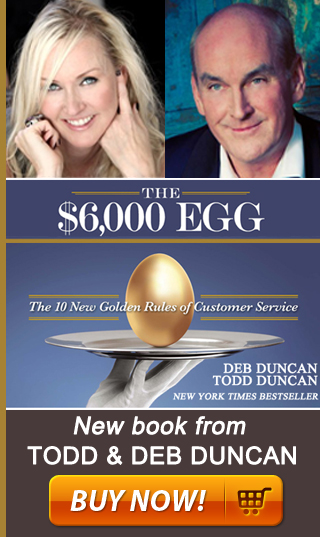Setting Your Own Standards |
Sep.17 |

By Todd Duncan
During the mid-1950s, Armour and Company was touting Dial as the nation’s leading antibacterial bar soap. Their slogan, “Aren’t you glad you use Dial? Don’t you wish everybody did?” was pasted everywhere—on billboards and buildings, in major newspapers and popular magazines. To compete, in 1958 Proctor & Gamble released its own antibacterial bar called Zest and with it the promise: “For the first time in your life, feel really clean.”
When Gary took a job selling P & G soap to hospitals during the height of competition, he knew he was inheriting a good reputation and one of the finest products on the market. But he wasn’t confident Zest was the best available. At the time, the average stay in a hospital was over a week. Gary knew that a priority for hospitals was a soap that could eliminate the spread of bacteria in the most efficient manner. Both Armour and P & G insisted their soap was king but Gary took neither at their word. Instead he set out to do some research of his own.
He drove from Des Moines to Omaha to pay a visit to a leading bacteriologist there. He had only one question: Which soap kills bacteria the best? The doctor had run the tests and he had the answer. With thanks Gary took his answer back home.
For the next fifteen years, Gary enjoyed a successful career selling soap for Proctor & Gamble and each time he met with a hospital executive his pitch was the same. “I spoke with a bacteriologist in Omaha and he assured me that Dial takes two to three days to kill bacteria but Zest kills bacteria immediately.”
Lesson Summary
Know your product. Gary could’ve leaned on the reputation of P&G to sell his wares but he insisted on something stronger. By verifying the singular effectiveness of Zest he not only determined how to set his product apart from the competition, he offered hard evidence that he could be trusted. A salesperson willing to do his own research—and accept the conclusions with integrity—is a salesperson who has his customers’ interests in mind.
Become a buyer in your own market. To remain ahead of your competition, you must understand what it’s like to be a consumer of your product. You can’t truly empathize with your buyers until you are one—otherwise your empathy is really just sympathy.
If your goal is to build high trust, a giant step is taken when the features of your product or services are tied to a prospect’s intrinsic needs and values.



 Follow me on Twitter
Follow me on Twitter Like me on Facebook
Like me on Facebook  Connect on LinkedIn
Connect on LinkedIn